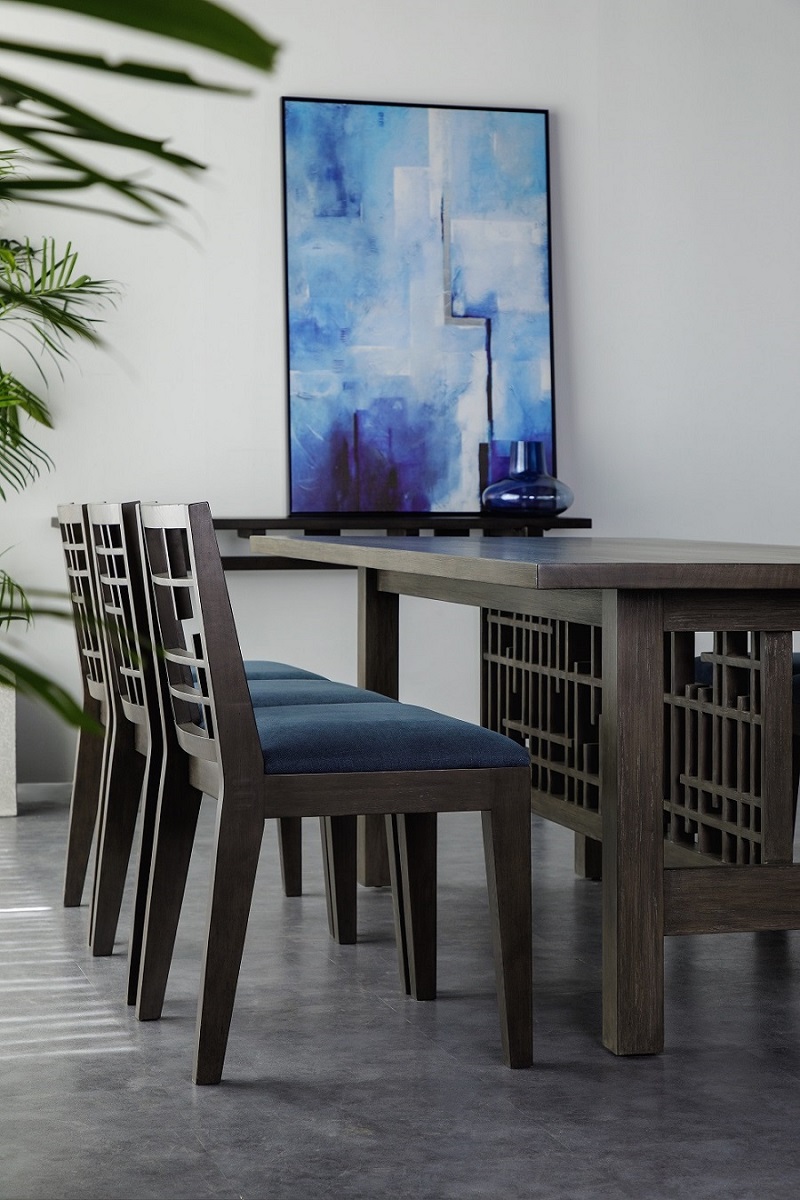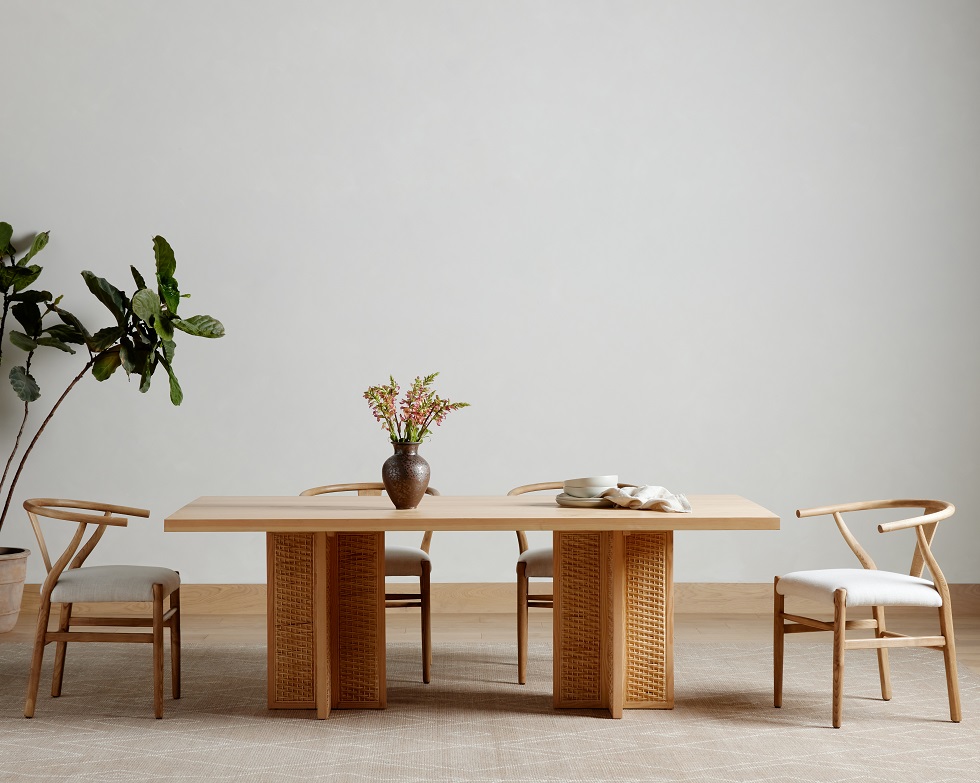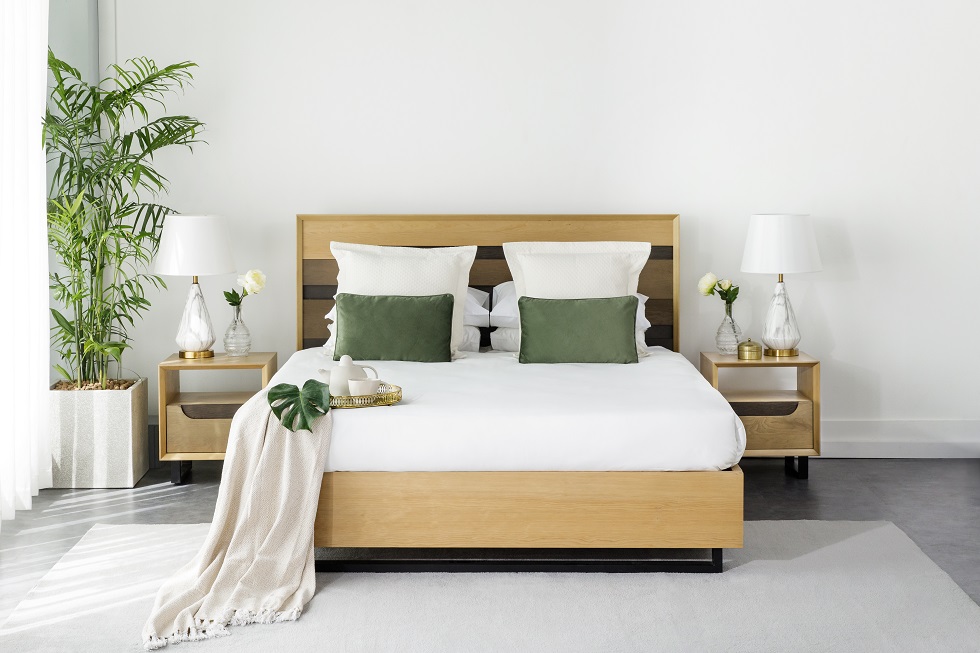A Vietnamese furniture maker takes advantage of the “Try Canadian Wood” initiative.
A growing number of Vietnamese furniture makers are turning to readily available certified Canadian softwoods as a viable, affordable option over traditional hardwood species.
Most recently, Phan Le Production, a well-established Binh Duong Province-based furniture maker, successfully trialed the use of Canadian western hemlock as a promising alternative. The trial was part of the “Try Canadian Wood” campaign—a program that provides small quantities of wood for product trials, so manufacturers can become more familiar with the properties and workability of Canadian softwoods.
The initiative is by Canadian Wood Vietnam, a government agency operating in Thu Dau Mot City in Binh Duong Province, which is dedicated to helping Vietnamese industry professionals source high-quality certified wood from Canada. Their technical specialists work directly with manufacturers, stockists, traders or importers to identify the right wood species and grade for a wide range of furniture and interior applications.
“As part of the ‘Try Canadian Wood’ initiative we work in close collaboration with Vietnamese manufacturers to better understand the design, colours and overall appearance they are trying to achieve. We will then help their fabrication team understand the technical considerations of using Canadian wood as an affordable substitute for more expensive species they may currently be using,” says Vince Tran, Country Director for Canadian Wood Vietnam. “We can even help guide them through creating a sample prototype they can use as a proof of concept and as a direct comparison to hardwoods, such as white oak and ash.”

Canadian softwoods are strong, durable and easy to work with
Easier to saw, plane and sand than traditional hardwoods, Canadian-grown softwoods, such as hemlock, can speed up production and reduce costly equipment wear-and-tear. Fabricators can achieve a similar look and feel for their designs using Canadian softwoods.
“They often remark on hemlock’s strength, stability and relative density and liked that it could provide a similar look and feel as hardwoods. Along with being easy to work with, hemlock is non-resinous and able to take any stain or paint colour,” says Tran.
Canadian softwood species, such as Douglas-fir, offer a unique, stand-out look that can serve as a market differentiator. “Douglas-fir is a strong, tight-grained option loved for its warm aesthetic and can be used for solid doors and door frames, furniture and general millwork. There are Vietnamese-based furniture makers using Douglas-fir as part of niche-product lines, allowing them to achieve a more exclusive look,” says Tran.
Spruce-pine-fir (SPF)—referring to white spruce, Engelmann spruce, lodgepole pine and subalpine fir, and all having common characteristics and properties—is grown in the interior regions of British Columbia, Canada. This hardy species thrives in all sorts of environments, from water-logged bogs to dry, sandy soils. It can be used for solid doors, doorframes, furniture framing and even modular housing. It is also commonly used in a number of other general industrial purposes such as packaging, crating, cable reels and concrete forming.
“And when it comes to durable indoor and outdoor furniture and applications, Canada’s western red and yellow cedar species are unmatched,” he adds.
Western red cedar is a popular species for outdoor furniture and projects and is also a great complement to interior finishes. It exhibits outstanding decay and termite resistance along with dimensional stability. Yellow cedar is one of the world’s most durable woods, with exceptional longevity. It has proven popular for furniture manufacturing, doors, door jambs and window frames.

Canadian softwoods come from sustainable, legal and certified sources
Along with these benefits, all five of these sustainably-harvested Canadian wood species can help Vietnamese wood fabricators meet the nation’s Timber Legality Assurance System requiring manufacturers to source wood products from legally logged forests. In response to this decree, Canada has been identified as a trusted international supplier and recognized as a legal and sustainable provider of forest products. Canada accounts for almost 35 percent of all certified forests globally—the largest of any country worldwide. You can learn more about the benefits of sustainably-harvested, certified Canadian wood products at: canadianwood.com.vn/en/resources or contact the Canadian Wood Vietnam team at info@canadianwood.com.vn to learn more about the “Try Canadian Wood” program.
About Canadian Wood Vietnam
Canadian Wood Vietnam is a government-funded agency located in Thu Dau Mot City and here to help you source high-quality certified Canadian wood well-suited to a variety of furniture and other manufacturing applications. Through our Try Canadian Wood initiative, Vietnamese manufacturers can put a range of softwood species to the test, whether they trial an entirely new idea or exploring cost-effective alternatives for an existing product line. Not sure where to start? Canadian Wood’s specialists can help identify the right wood species and grade for your applications. And if you are a stockist, trader or importer, we can help you find the right Canadian wood suppliers to better serve your client list.
Website: canadianwood.com.vn
Contact us: info@canadianwood.com.vn. | +84 274 380 3609









